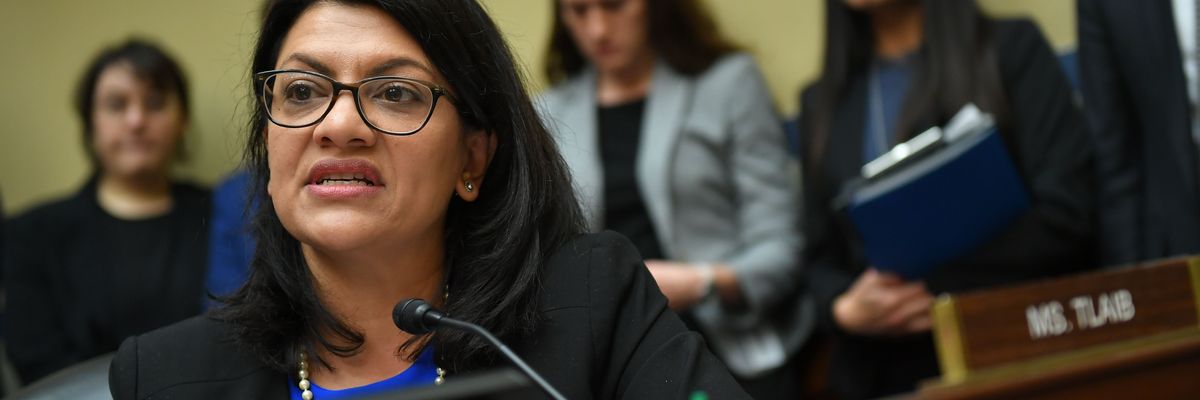U.S. Rep. Rashida Tlaib is calling on her fellow Democrats to "stay at the table and demand a better deal for our children" instead of supporting the Tax Relief for American Families and Workers Act, a bill that pairs a partial expansion of the child tax credit with major tax breaks for corporations and the wealthy, which was expected to reach the House floor for a vote Wednesday evening.
Tlaib (D-Mich.) echoed the concerns of Rep. Rosa DeLauro (D-Conn.), a longtime champion of an expanded child tax credit (CTC), saying Democrats and Republicans have negotiated a bill that "gives billions of dollars in tax breaks to the rich, while leaving behind millions of children living in poverty."
A number of progressive groups have joined Republicans in calling for the passage of the bill (H.R. 7024), which was negotiated by Rep. Jason Smith (R-Mo.) and Sen. Ron Wyden (D-Ore.), but Tlaib and DeLauro have each analyzed the legislation and found that while it offers an average of $57,530 in tax breaks for the richest 0.1% of Americans, the poorest 20% of households would receive just $60 in tax credits.
"Our families deserve so much better than a bill that trades massive tax breaks for the richest Americans for crumbs for a fraction of the poorest children in our country. In the first year, the richest 120,000 households would get a larger share of the tax benefits than the bottom 88 million families," said Tlaib.
Like DeLauro, Tlaib said Democrats should not accept the CTC provisions in H.R. 7024 after seeing the transformative difference the American Rescue Plan (ARP) made in U.S. poverty rates in 2021.
Childhood poverty was slashed by 30% by the enhanced CTC included in the ARP, reaching 61 million children and allowing their parents and guardians to pay for groceries, childcare, and other essentials.
"This deal falls short, and will only reach a fraction of the most vulnerable," said Tlaib.
With Republicans insisting on minimum income and work requirements for the CTC, the provision in H.R. 7024 leaves out the poorest families while ensuring households that earn up to $400,000 per year get a $2,000 credit.
Meanwhile, said Tlaib, "corporations who are already dodging paying their fair share of taxes" will benefit from "another handout" if the legislation is passed.
"For example, Meta—a company making tens of billions in profits—would see its effective tax rate drop from 25% to -2% under this bill," said the congresswoman. "Working families in my district should never be paying higher taxes than the richest companies on Earth. I cannot support a bill that deepens wealth inequality and economic injustice to benefit the richest Americans and corporations."
Tlaib called on Congress to pass the End Child Poverty Act, which would implement a "universal child benefit" of $428 per child, per month to all families "so that nobody is left behind."
"This universal child benefit proposal would dramatically simplify our nation's child benefit system and provide financial security for all families when they have a child," said Matt Bruenig, founder of the People’s Policy Project, last year when Tlaib introduced the legislation.
Bruenig's group found that Tlaib's proposal would cut child poverty by 61%, the deepest child poverty by 93%, and overall poverty rates in the U.S. by 26%.
"We need real solutions," said Tlaib on Wednesday, "not more tax breaks for the rich."

